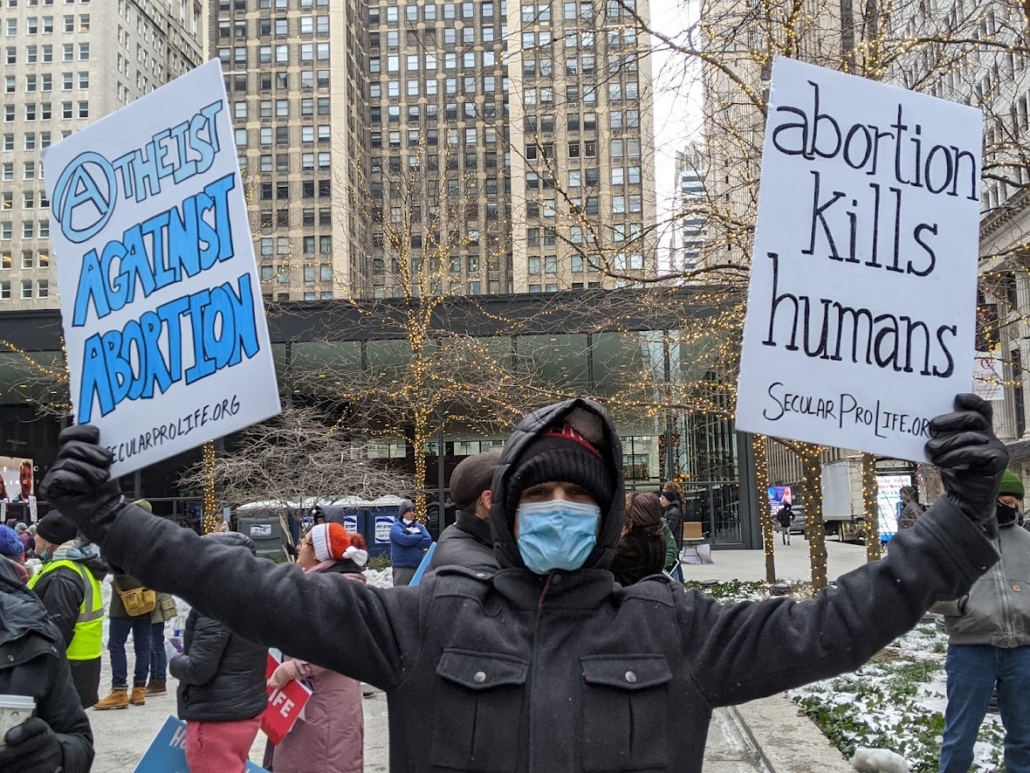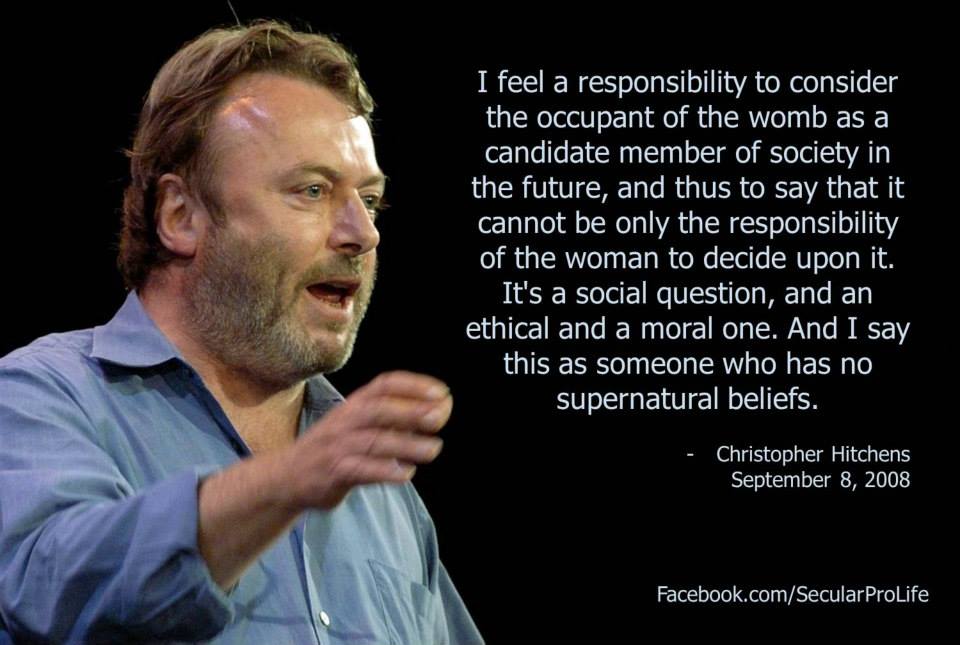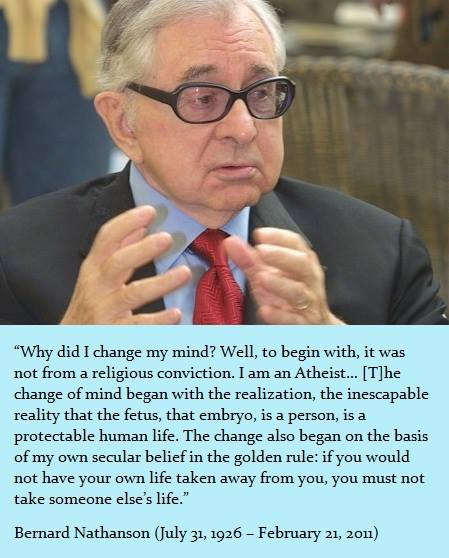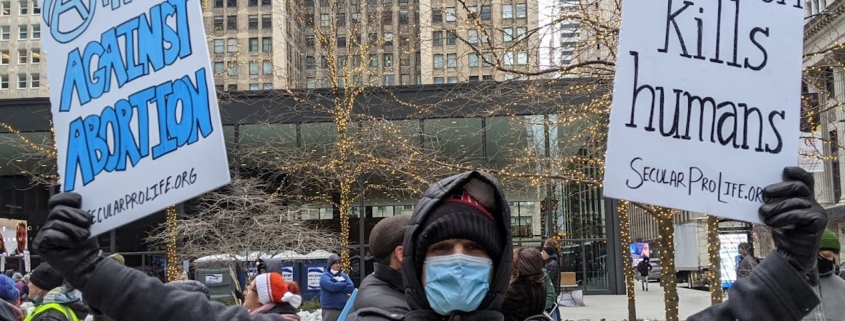Statistics demonstrating you don’t have to be religious to be pro-life
[Much of the following information is also available as a Twitter thread here.]
You don’t have to be religious to be against abortion, as evidenced by the existence of pro-life atheists (like us), agnostics, and other non-religious people.

For pro-choicers who argue otherwise, the thought process seems to be “religious people are pro-life, so if you’re pro-life you must be religious.” This is a common logical misstep called “affirming the consequent.” We take a true conditional statement (e.g. “If you’re swimming, you’re wet”) and incorrectly assume the converse statement is true (e.g. “If you’re wet, you’re swimming.”) In this case the conditional statement could be “If you’re religious, you’re pro-life” and the incorrectly assumed converse would be “If you’re pro-life, you’re religious.”
The argument has even more problems than that error, though, because the conditional statement (“If you’re religious, you’re pro-life”) isn’t consistently true in the first place. For example, according to Pew Research*, 48% of Catholics think abortion should be legal in all or most cases, as do 33% of Evangelical Protestants, 55% of Muslims, and 83% of Jewish people. While it’s true that most pro-life Americans are religious, it’s also true that most pro-choice Americans are religious — because most Americans are religious. It doesn’t then follow that any particular pro-life or pro-choice person is basing her views solely on religion — or on religion at all.
A stronger conditional statement would be that pro-life people are more likely to be religious than pro-choice people. Again according to Pew, of the people who think abortion should be legal in all/most cases, 68% profess a religion, whereas of the people who think abortion should be illegal in all/most cases, it’s 87%. The converse — that religious people are more likely to be pro-life than non-religious people — also appears to be true, especially if we define “religious” to include actively participating in a religion. Pew finds that, of the people who attend religious services weekly, 63% think abortion should be illegal in all/most cases, compared to 24% of people who seldom or never attend.
But (correctly) pointing out that pro-life people are more likely than pro-choice people to be religious is more nuanced than claiming a person must be religious to be pro-life. We can simultaneously recognize a general rule and the exceptions to it. For example, of the people who think abortion should be illegal in all/most cases, 41% seldom or never participate in prayer or scripture study; 17% seldom or never attend religious services at all; and 12% consider themselves unaffiliated with religion, including 4% who are agnostic (not at all certain god exists) and 2% who are atheist (specifically do not believe in god).
Sometimes the people making the original claim will amend it to something like “You may not personally believe in a religion, but you could only be anti-abortion if you’ve been indoctrinated by the religious society we all live in.” This sounds suspiciously like a non-falsifiable theory: only religious people are pro-life, so if a non-religious person is pro-life, it can only be because she’s secretly or subconsciously religious. (This claim is similar to claims that pro-life women are internalized misogynists or pro-life people of color are whitewashed.)
I find most who purport this non-falsifiable theory won’t commit to it to the point of claiming Christopher Hitchens was subconsciously religious, despite his clear skepticism of and objections to abortion.

[Read more – Christopher Hitchens wound up opposing abortion choice]
As another example, Dr. Bernard Nathanson was an atheist and an abortion provider, yet, as he witnessed the fetus through then-new ultrasound technology, defected entirely to the pro-life side.

Being pro-life doesn’t require religion any more than any other human rights cause. No one claims you need religion to care about the wellbeing of born children, refugees, queer folk, people with disabilities, or other groups of born people. Prenatal children are no exception.
*All of the data from Pew Research were accessed on 8/15/2021.
If you appreciate our work and would like to help, one of the most effective ways to do so is to become a monthly donor. You can also give a one time donation here or volunteer with us here.




Leave a Reply
Want to join the discussion?Feel free to contribute!